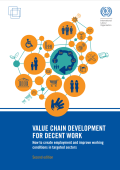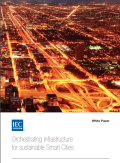The transition to a low carbon economy is a capital-intensive process requiring large-scale finance of suitable low-carbon investment programmes. This policy brief, Securing Macro-economic Gains from Decarbonisation Investment, examines the trends driving long-term investing in low-carbon development. This challenge is linked to the expansion of efficient (e.g. low cost) private finance for capital-intensive low-carbon assets, on both the supply (financial structures) and demand side (energy technologies and policies) of investment decisions. Different policies in place and country risk profiles determine the wide variation of investments’ rate of returns across markets and sectors. In 2016, the range of financing costs in the ‘green and renewables’ sector varies from 3.4 % in Germany to 8 % or more in Greece and many emerging markets, reflecting perceived risks associated with these countries and their relevant energy-climate policies.
Technological diffusion is recognized as a key pillar of climate change mitigation in environmental agreements. This policy brief, Enhancing Technology Transfer and Diffusion, published as part of the Green-Win project, finds that enhanced technology transfers within a ‘climate club’ would have sizeable positive effects on GDP in a 2° scenario. Existing international policy measures such as the Clean Development Mechanism only had an impact on north-south diffusion and have mainly been directed to large emerging economies, mostly China, India, and Brazil. There exist major gaps in the network of technological diffusion, between and within developing world regions. Technology diffusion routes are much more influenced by long-term trade relationships existing between countries and by the level of technological development than by sectorial policy measures such as renewable support policy. In order to foster technological diffusion, climate clubs must target a major shift in the structure of international trade and economic integration.
Green small and medium-sized enterprises (SMEs) represent a key win-win strategy and are one of the main drivers of green transformation. Taken together, SMEs have a greater impact on the economy and the environment than large companies; thus the dynamics of green growth very much depend on how small businesses can integrate sustainable practices into their business activities. Green SMEs that are focused on financial profit and dedicated to environmental sustainability can lead the green transformation from the ground up by creating new business models and providing examples of successful sustainable business practices that can be adopted by more and more companies.


